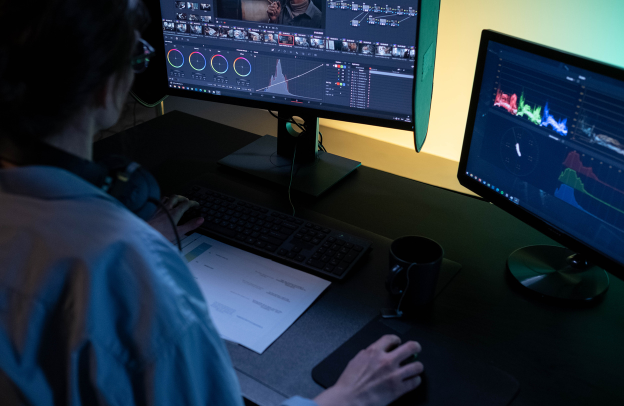Owning Our Narratives: Harnessing Indigenous Knowledge for Global Creative Success

As you scroll through social media these days, absorbing the creative expressions from the African diaspora, you may notice a profound absence—a disconnect between the vibrant stories being told and the narratives that dominate mainstream discourse. In this space, where cultures converge and collide, the need to reclaim your story has never been more pressing.
Want to learn more about storytelling? Start by downloading the first chapter of The Storytelling Mastery.
The words of Professor Oluwafemi Esan resonate deeply: “Our stories shape who we are and influence how we engage with the world.”
This article invites you to explore how harnessing Indigenous Knowledge Systems (IKS) can empower you and your fellow creatives to reclaim your narratives, drive success in the global creative economy, and ensure that your voices are not just heard, but celebrated. But first, storytelling in the African Diaspora.
The Importance of Storytelling in the African Diaspora
Storytelling has always been an intrinsic part of African cultures, serving as a means of preserving history, teaching moral lessons, and fostering community bonds. According to a report by the African Development Bank, the creative economy in Africa is projected to grow to $150 billion by 2025, driven largely by the burgeoning talent within the diaspora.
Meanwhile, Goldman Sachs notes that the so-called “creator economy” has surged in recent years and is projected to continue its rapid growth in the coming years, according to Goldman Sachs Research.
The article, The Creator Economy Could Approach Half a Trillion Dollars by 2027, added, “As the ecosystem grows, the total addressable market of the creator economy could roughly double in size over the next five years to $480 billion by 2027 from $250 billion”
See also Why Hiring African Talent is a Win-Win: Support African Talent, Strengthen Your Business
However, this potential, some analyses will say, remains under-exploited, as many narratives are filtered through Western perspectives that often dilute their authenticity.
You may have encountered statistics illustrating the stark realities of representation in creative industries. A 2021 study by the Geena Davis Institute on Gender in Media found that Black characters represent only 13% of speaking roles in Hollywood films, despite comprising nearly 14% of the U.S. population.
This lack of representation extends to various creative sectors, underscoring the importance of African creatives owning and sharing their stories to combat stereotypes and foster a more inclusive narrative landscape.
The opportunity for change lies in harnessing your unique cultural heritage. By tapping into the rich well of Indigenous Knowledge Systems, you can create art, businesses, and projects that resonate authentically with both local and global audiences.
This not only enriches your own creative practice but also contributes to a broader movement of cultural reclamation and empowerment.
Understanding Indigenous Knowledge Systems (IKS)
Indigenous Knowledge Systems, or IKS, encompass the knowledge, skills, and practices that local communities develop over generations to thrive in their environments.
This knowledge is often transmitted orally, embedded in cultural practices, and deeply intertwined with the natural world. IKS is cumulative and dynamic, reflecting the unique histories and values of Indigenous peoples.
As you embark on your journey of creative entrepreneurship, consider how IKS can enhance your work. For instance, the use of traditional storytelling techniques or incorporating indigenous art forms into your projects can offer deeper connections to your audience.
See also How Diaspora Businesses Can Leverage African Talent in the Global Creative Economy
When discussing Indigenous Knowledge Systems, it’s crucial, especially as someone of African descent, to engage with older members of your community. These elders often hold valuable insights into how traditional knowledge is gathered, processed, and applied to solve problems.
By learning from them, you can understand how this knowledge is preserved and passed down through generations. Every African culture has its own unique ways of collecting and using data for problem-solving, and it’s our task to uncover these methods and explore how they can be integrated into our modern societal frameworks.
A recent report from the United Nations Educational, Scientific and Cultural Organization (UNESCO) emphasizes that cultural diversity and heritage play a crucial role in fostering creativity and innovation.
By integrating IKS into your creative endeavors, you can better position yourself to not only engage authentically but also to innovate in ways that honor your cultural roots.
Insights from Professor Oluwafemi Esan
In a recent episode of the Obehi podcast, Professor Oluwafemi Esan highlighted the critical role of IKS in African psychology and identity formation. He posits that understanding Indigenous ontology—how Indigenous cultures perceive relationships with the natural world and each other—can reshape how you approach your creative work.
This perspective fosters a sense of interconnectedness that is often missing in Western paradigms. As a creative entrepreneur of African descent, living in Western society, you could be in a better position to profit from both worlds, (Euro-western and African perspectives).
For example, IKS can inform local decision-making, disaster preparedness, and even climate change responses. In Swaziland, for instance, local farmers use IKS to predict seasonal changes and mitigate the impacts of climate variability.
This adaptability and resilience can inspire you to incorporate similar strategies into your business practices, enabling you to thrive in a rapidly changing global landscape.
Bridging Indigenous and Western Knowledge Systems
However, integrating IKS into your creative practice is not without challenges. Often, Indigenous knowledge is viewed through the lens of Western scientific methods, which can lead to misinterpretations or appropriation.
According to a study by the World Bank, Indigenous Knowledge is frequently undervalued, which can hinder its application in sustainable development initiatives.
It’s crucial, therefore, for you to navigate these challenges thoughtfully, ensuring that your work honors and respects the origins of the knowledge you incorporate.
To address these challenges, some First Nations have developed protocols to protect their IKS from unauthorized use. For instance, the First Nations Information Governance Centre in Canada has established guidelines for the ethical management of Indigenous data.
By adopting similar principles, you can safeguard your narratives while fostering collaboration with your community and ensuring that the benefits of your work are equitably shared.
AClasses Academy: Empowering Creative Entrepreneurs
As you seek to deepen your understanding of IKS and apply it in your creative ventures, AClasses Academy offers an invaluable resource. Founded to educate and empower African creatives, the academy provides courses on applied Indigenous Knowledge Systems, featuring insights from experts like Professor Esan and other scholars on African knowledge and business initiatives.
These courses will equip you with the skills and knowledge needed to navigate the global creative economy while remaining rooted in your cultural heritage.
Moving Forward: Strategies for Success
As you reflect on the potential of IKS in your creative journey, consider these actionable steps to reclaim and own your narrative:
- Embrace and Document Your Heritage: Begin by engaging with elders and community leaders to learn about local stories, traditions, and practices. Documenting these narratives can serve as a powerful foundation for your creative work.
- Collaborate and Share: Forge partnerships with other creatives within the diaspora. By collaborating on projects that highlight your shared heritage, you can amplify your voice and reach broader audiences.
- Engage with Educational Resources: Utilize platforms like Aclasses Academy to enhance your understanding of IKS. Continuous learning will empower you to integrate these principles into your creative practice effectively.
- Leverage Social Media: Use digital platforms to share your stories and connect with like-minded individuals. Highlight your unique cultural perspectives and engage in conversations about representation and authenticity in the creative space.
- Advocate for Change: Join or support initiatives that aim to increase the representation of African narratives in mainstream media. By being vocal about the importance of authentic storytelling, you contribute to a larger movement for equity in the creative industries.
Conclusion on Owning Our Narratives
The journey to reclaiming your narrative is not just about personal success; it is a collective endeavor that fosters a richer, more diverse global creative landscape. As you embrace the principles of Indigenous Knowledge Systems, you position yourself as a custodian of your culture, sharing its beauty and complexity with the world.
You might also like AClasses Academy: Your Ultimate Learning Platform for Business and Self-mastery
The potential of the African diaspora is immense, with the creative economy poised for growth.
By owning your stories and utilizing IKS, you not only elevate your work but also inspire others to do the same. The time to act is now. So, let your voice be heard, let your narrative thrive, and let the world see the true richness of your heritage.
Want to learn more about storytelling? Start by downloading the first chapter of The Storytelling Mastery.





